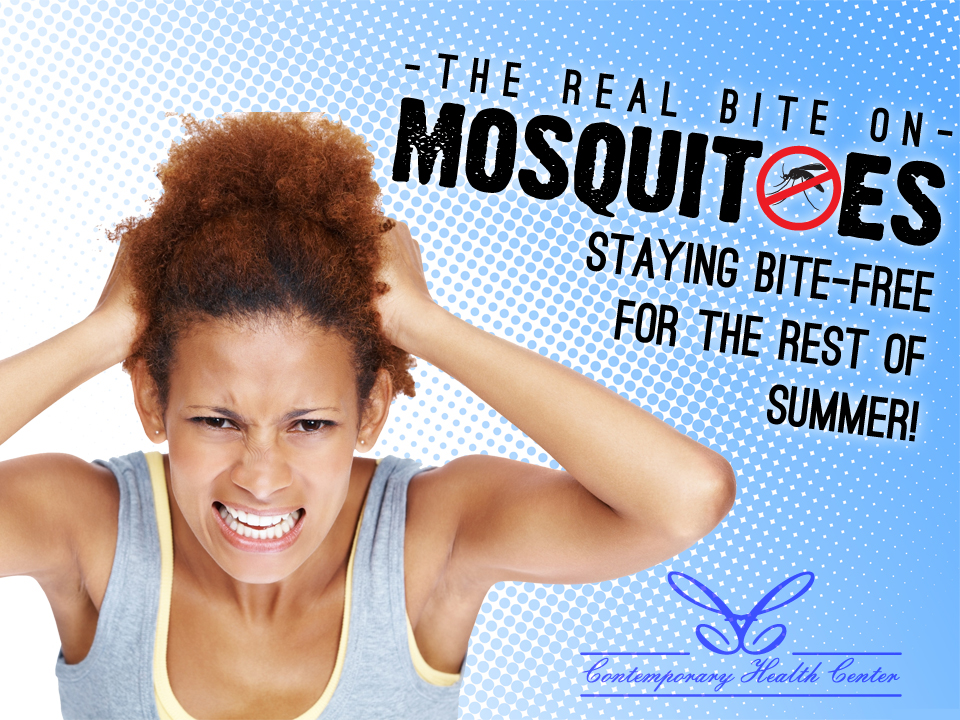If you spend any time in Southwest Florida during the summer months, you know firsthand what kind of nuisance mosquitoes can be. With their incredible biology and their ability to breed in just about any environment, mosquito control is a paramount concern for county leaders in the area.
Lee and Collier counties comprise 1401 square miles of land that need mosquito control. In fact, the Mosquito Control Districts of Lee and Collier counties are made up of 105 full-time employees and have annual operating costs of more than $22 million – much of which goes to planes and fuel.
Besides being a “pesky” pest, mosquitoes are a concern on the health front as well. Thanks to exotic diseases like West Nile Virus, mosquitoes have been getting a lot of attention in the news lately. In today’s blog, we’ve compiled some mosquito facts as well as some tips and tricks to help you stay bite free until the milder months begin.
Not All Mosquitoes Are Created Equal
We think of just a couple different types of mosquitoes as existing, but there are more than 165 different species of mosquitoes in North America and about 3,500 species worldwide. While those seem like huge numbers, not all of them bite humans. Of the mosquitoes that DO see us as a meal, only the females are biting culprits. They use the proteins in our blood to produce eggs.
Of the 165 or so mosquito species in North America, there are only two breeds responsible for spreading disease – the Aedes Aegypti and the Aedes Albopictus. The latter of which may be more familiar to you, as its black and white stripes have made it commonly known as the Asian Tiger Mosquito.
Chemical Attraction
While research into mosquitoes being attracted to specific blood types has been inconclusive, there is also little evidence supporting the theory that the biting buggers are more attracted to dark clothing, as well. But what we DO know is that mosquitoes zero in on CO2. If you’re getting bitten more often than your camping buddies, there’s a good chance you’re exhaling higher levels of carbon dioxide, thereby making yourself easier to spot to a hungry she-mosquito.
Almost everyone will feel the itchy after-effects of a bite, though some people will itch more than others. This reaction is relative to the histamine release in your body post-bite. Your body reacts with this anti-inflammatory immune response due to the mosquito’s saliva that is injected into your skin while the biting bug is feasting.
If you do get bit, do your best to resist the urge to scratch. The adage that scratching makes bites worse is unfortunately very true. Over-scratching can cause breaks in the skin that leave room for infection.
After a run-in with one of nature’s vampires, the best course of action is to wash the affected areas with mild soap and cold water. This will not only reduce the risk of infection, it will also provide some itch relief.
If the bites are still driving you crazy, over-the-counter products might help. Anti-inflammatory creams, hydrocortisone cream or topical antihistamines are almost guaranteed to bring some itch alleviation.
Mastering the Mosquito Multitudes
As simple as it sounds, controlling the breeding of mosquitoes is a big part of preventing out-of-control populations of this pest. Mosquitoes can breed in just about anything that holds water – even something as small as the cap to a bottle of water. However, keeping an eye on the outside of your house can go a long way.
Be sure to dump out any planters, yard decorations, grill covers or any other water-retaining items in your yard after a rain. Removing the standing water will decrease the likelihood that mosquitoes will lay and fertilize eggs in enough time to create a new brood.
In addition to environmental control, there are a number of natural products (as well as chemical products) that keep mosquitoes at bay. While plants such as basil, citrosa, common lantana, lavender, lemon balm and others have been lauded as natural exterior repellents, good old-fashioned citronella oil seems to be the most common choice for repelling mosquitoes outside.
The chemical DEET has been shown very effective in keeping mosquitoes at bay, but the concentration of this ingredient can vary greatly – anywhere from 4 to 100 percent. If you’re not so keen in coating yourself with chemicals, there are many natural products that claim to do the same when it comes to repelling mosquitoes. Lemon-eucalyptus sprays, lemongrass oil sprays and even chamomile compounds are among common ingredients in natural bug repellants.
In the age of information, there is certainly no shortage of reviews and opinions available on any of these products. No matter which you end up choosing, do think of mosquito repellent if you plan to be outdoors for any length of time – especially near water. In addition to sparing you from the itchy wrath of blood-hungry broods, you may very well prevent the spread of disease by taking steps to keep mosquitoes at bay.
Stay safe out there!


